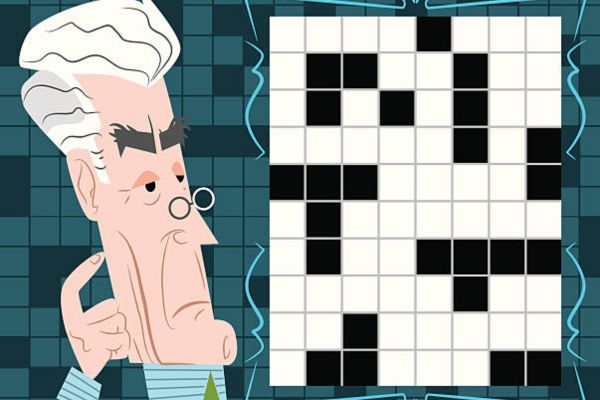Wasn’t Cheerful Crossword Clue: Solving This Puzzle Challenge

What Does “Wasn’t Cheerful Crossword Clue” Mean?
Crossword puzzles often challenge players with clues that require a deep understanding of wordplay, synonyms, and contextual meanings. The phrase “wasn’t cheerful crossword clue” typically refers to words associated with sadness, disapproval, or a lack of happiness. In various crossword puzzles, clues phrased this way can lead to different potential answers, making it crucial to analyze the clue carefully.
Common Answers to “Wasn’t Cheerful Crossword Clue”
Solving the “wasn’t cheerful crossword clue” requires considering words that convey sadness or a lack of cheerfulness. One of the most common answers to this clue is “BOOED”. This answer plays on the contrast between “cheering” (expressing happiness and encouragement) and “booing” (showing displeasure or disapproval). However, other possible answers might include:
- SAD – A simple three-letter word directly related to not being cheerful.
- GLUM – Often used to describe a person who appears downhearted or sorrowful.
- MOODY – A five-letter word that suggests a changeable, often unhappy disposition.
- DEPRESSED – A longer answer that describes a severe lack of cheerfulness.
Each of these words fits different crossword puzzles depending on the number of letters and the surrounding clues.
How to Approach “Wasn’t Cheerful Crossword Clue”
When solving a crossword clue like “wasn’t cheerful crossword clue,” it’s important to follow a systematic approach:
- Look at the Number of Letters: The crossword grid provides a strong hint about the answer’s length.
- Consider Synonyms: Think of words that mean “not cheerful” and match the letter count.
- Check for Crossword Patterns: If you have any letters filled in, use them to narrow down possibilities.
- Use Contextual Clues: Some crosswords provide additional hints in surrounding answers that can help confirm or eliminate options.
- Think About Wordplay: Some crossword clues involve puns, anagrams, or indirect hints.
By applying these techniques, you can efficiently solve the “wasn’t cheerful crossword clue” in different puzzle settings.
Variations of “Wasn’t Cheerful Crossword Clue” in Different Crosswords
Different crossword publishers might phrase “wasn’t cheerful crossword clue” slightly differently. You might come across variations such as:
- “Showed disappointment vocally” – This could also lead to answers like “booed.”
- “Was gloomy” – Words like “moody” or “glum” could fit.
- “Expressed disapproval” – Again, “booed” is a potential answer.
Understanding the different ways crossword clues can be phrased helps improve solving skills over time.
Why Crossword Clues Like “Wasn’t Cheerful Crossword Clue” Matter
Crossword puzzles challenge our vocabulary, logic, and lateral thinking. Clues like “wasn’t cheerful crossword clue” teach us to think beyond direct definitions and consider broader meanings and word relationships. They also enhance problem-solving skills, which can be useful in everyday language comprehension.
Tips for Becoming a Better Crossword Solver
If you frequently encounter clues like “wasn’t cheerful crossword clue” and want to improve your solving ability, consider these strategies:
- Expand Your Vocabulary: Regularly learning new words and their meanings helps recognize tricky clues.
- Practice with Different Crosswords: Different publishers have varying clue styles. Solving multiple types helps adapt to various approaches.
- Use a Crossword Dictionary: These specialized dictionaries provide possible answers based on word patterns.
- Engage in Word Games: Playing word-based games like Scrabble or anagrams can sharpen your ability to recognize potential answers.
- Solve Crosswords Regularly: The more puzzles you solve, the better you get at identifying common patterns and tricks.
Conclusion
The “wasn’t cheerful crossword clue” is a great example of how crossword puzzles challenge solvers to think critically about language and wordplay. Whether the answer is “booed,” “sad,” or another word related to a lack of cheerfulness, recognizing the patterns and hints in the crossword grid is key. By improving solving techniques and expanding vocabulary, anyone can become a more proficient crossword solver.
